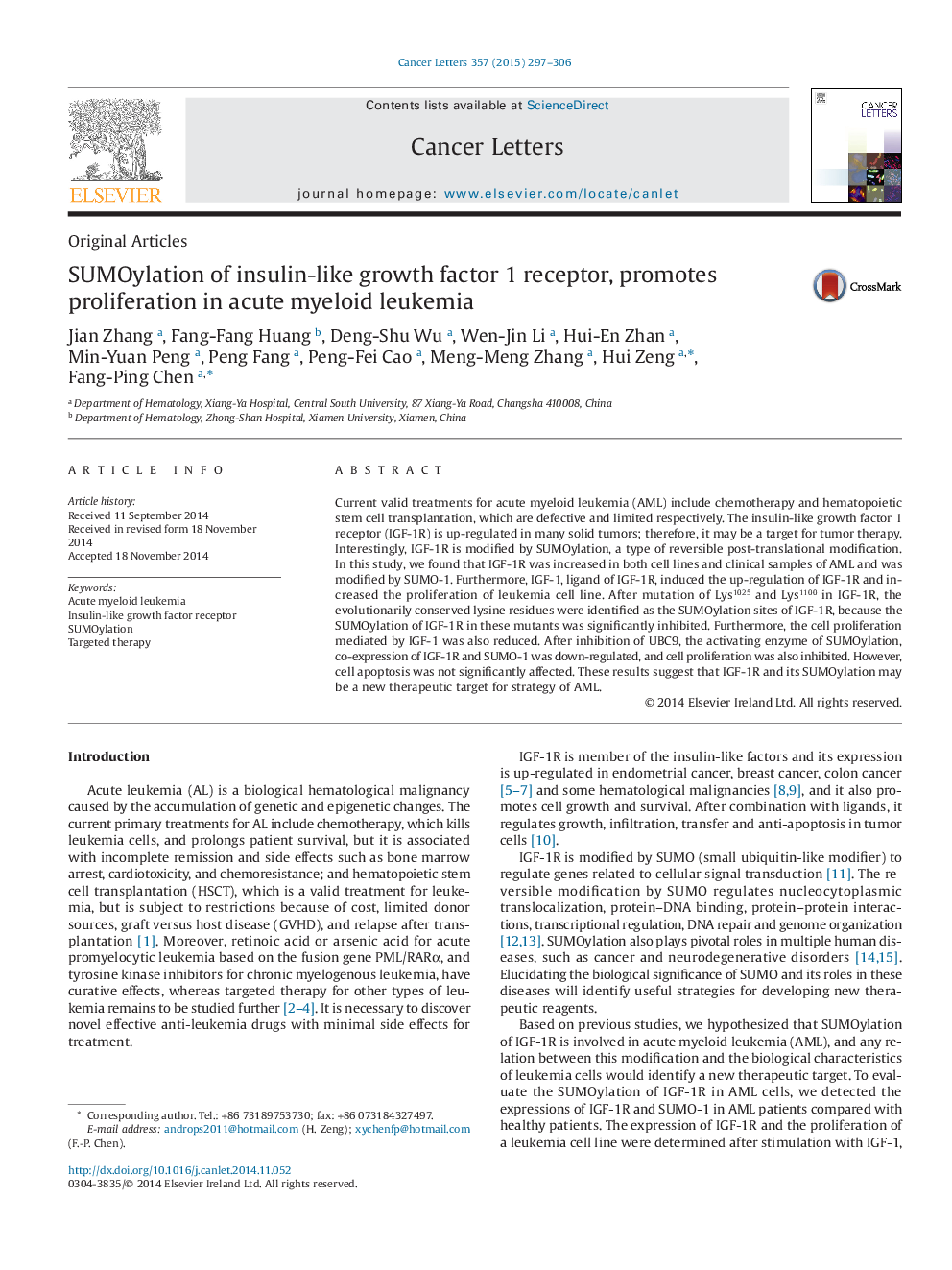| Article ID | Journal | Published Year | Pages | File Type |
|---|---|---|---|---|
| 10899591 | Cancer Letters | 2015 | 10 Pages |
Abstract
Current valid treatments for acute myeloid leukemia (AML) include chemotherapy and hematopoietic stem cell transplantation, which are defective and limited respectively. The insulin-like growth factor 1 receptor (IGF-1R) is up-regulated in many solid tumors; therefore, it may be a target for tumor therapy. Interestingly, IGF-1R is modified by SUMOylation, a type of reversible post-translational modification. In this study, we found that IGF-1R was increased in both cell lines and clinical samples of AML and was modified by SUMO-1. Furthermore, IGF-1, ligand of IGF-1R, induced the up-regulation of IGF-1R and increased the proliferation of leukemia cell line. After mutation of Lys1025 and Lys1100 in IGF-1R, the evolutionarily conserved lysine residues were identified as the SUMOylation sites of IGF-1R, because the SUMOylation of IGF-1R in these mutants was significantly inhibited. Furthermore, the cell proliferation mediated by IGF-1 was also reduced. After inhibition of UBC9, the activating enzyme of SUMOylation, co-expression of IGF-1R and SUMO-1 was down-regulated, and cell proliferation was also inhibited. However, cell apoptosis was not significantly affected. These results suggest that IGF-1R and its SUMOylation may be a new therapeutic target for strategy of AML.
Related Topics
Life Sciences
Biochemistry, Genetics and Molecular Biology
Cancer Research
Authors
Jian Zhang, Fang-Fang Huang, Deng-Shu Wu, Wen-Jin Li, Hui-En Zhan, Min-Yuan Peng, Peng Fang, Peng-Fei Cao, Meng-Meng Zhang, Hui Zeng, Fang-Ping Chen,
